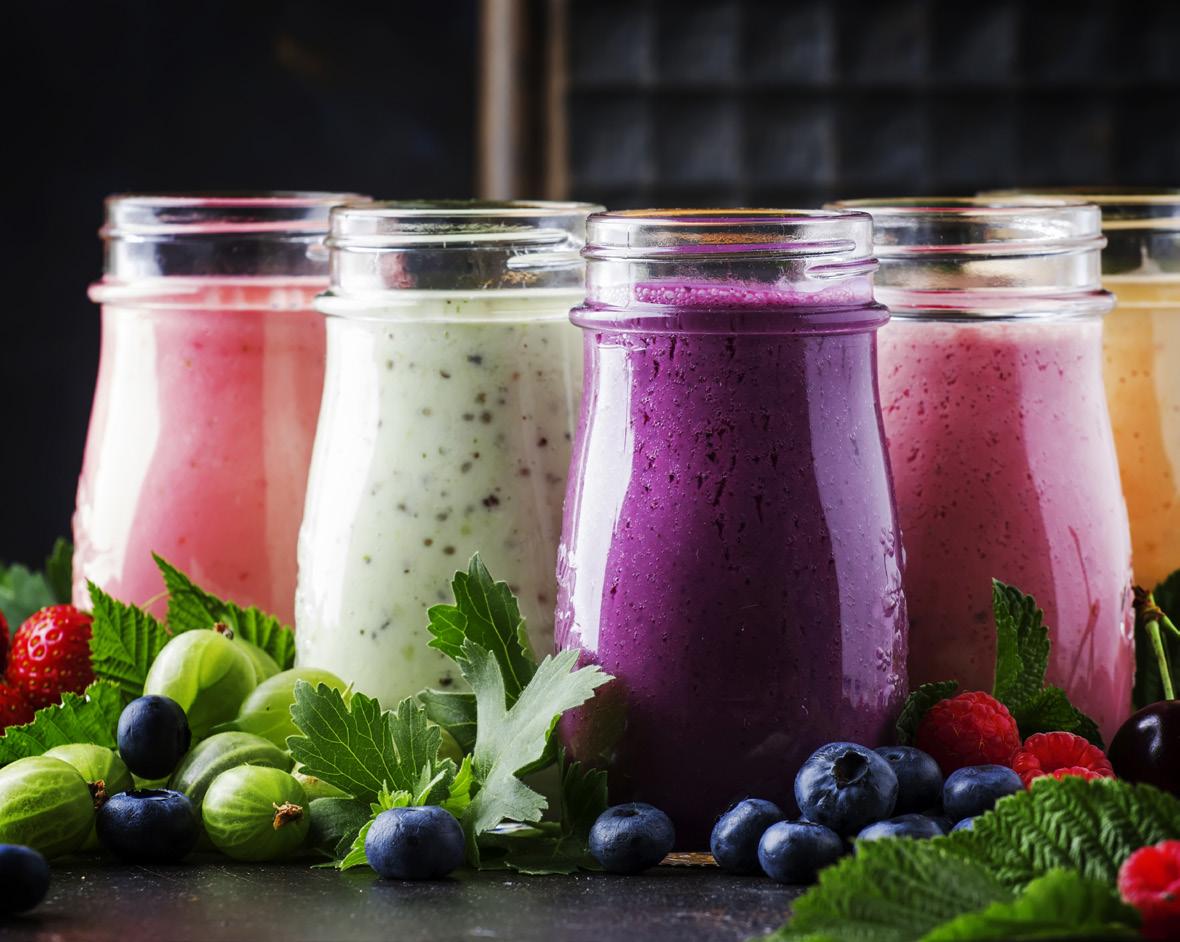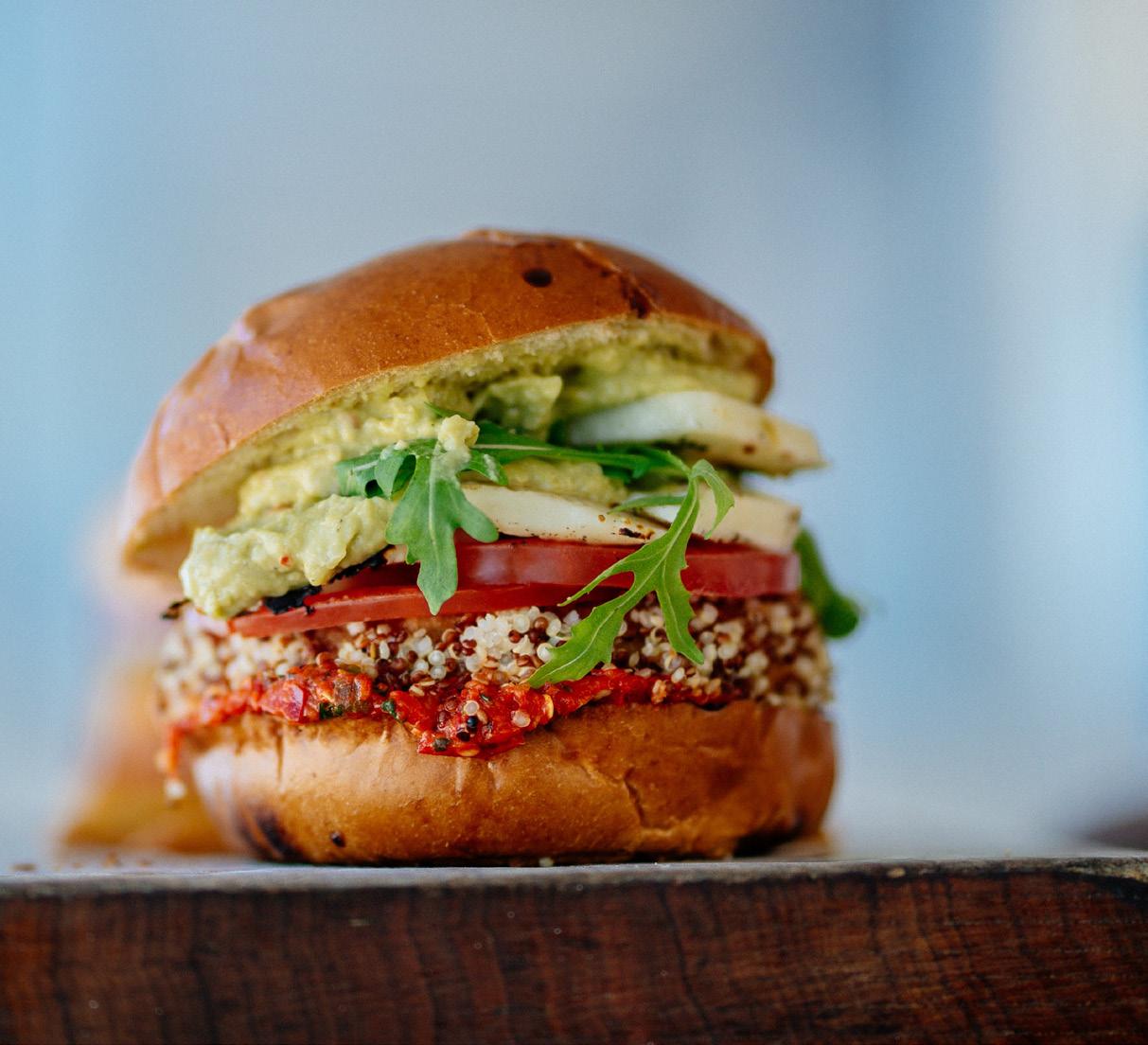
5 minute read
Key takeaways
Eating out, dining in: The European foodservice sector needs to offer genuine innovation to rebound from the pandemic
Over the last twelve months, the European foodservice sector has taken a massive hit and will continue to do so for the next couple of months, especially as a third wave of the virus in the region looks inevitable. Despite the pessimism, consumer confidence should return throughout the year as a vaccine program is implemented in the region. This creates the opportunity for the foodservice sector to try and show genuine innovation to try and entice consumers back on to the high street.
While some consumers admit that they cannot wait for life to return to normal, there are others who remain hesitant about visiting public places and mass gatherings, even after restrictions on movement are lifted. This poses a challenge to physical outlets within the foodservice channel, as consumers will seek reassurance about safety and hygiene practices that have been implemented. Two other challenges also need to be considered by the foodservice sector. Firstly, the growth of direct-to-consumer channels means that more people are happy to enjoy premium eating and drinking occasions at-home. Linked to this, premium offers from retailers also pose a threat as they enable consumers to enjoy foodservice quality products within the comfort of their own home. If physical foodservice outlets are to entice consumers back into the high street, they need to create genuine stand out appeal.
53%
47% 56%
40%
Denmark France Germany Italy Netherlands
Consumers want brands that they feel match their attitudes and outlook on life, and the European foodservice sector must respond to this with genuine innovation. The best way to do this is through combining sensory appeal with environmental attributes, two issues that are of high importance to consumers across the region. Indeed, physical outlets should look to launch experimental products on menus (including limited time offerings), whilst also promoting green credentials. This goes beyond offering plant-based products on the menu and instead, highlighting sustainability initiatives along the whole of the supply chain.
Menu innovation is something that will be more beneficial to the foodservice sector in the long-term compared to aggressive discounting strategies. This is because innovation encourages consumers to tradeup, as opposed to launching strategies that encourage price sensitivity.
73%
34% 45% 36% 47% 50%
Poland Serbia Slovenia Spain Turkey UK
Source: Foodservice survey 2020 (11,000 respondents)
Key takeaways
• Take the hassle out of healthy living: Consumers want to improve their eating and drinking habits in an attempt to stay fit and active until later in life. At the same time, they can often struggle to stick to dietary plans. This means that any better-for-you products must be deemed compromise-fee.
• Provide the story behind the product: Consumers want to know the story-behind the products they purchase for safety and quality purposes. This means that brands should use story-based marketing to educate consumers on issues such as the country of origin, supply chain and production processes behind brands.
• Launching functional products that minimise the risk of disease and illness: Consumers are taking a greater interest in functional products that help boost the immune system. This creates the opportunity to educate consumers about different ingredients and the associated health benefits. Any related claims must be deemed credible.
• Ensure plant-based products are deemed compromise-free: Consumers want to reduce their intake of meat and dairy but can be conscious about the taste and texture of plant-based products. As such, it is crucial that plant-based products mimic the experience of eating and drinking animal produce from a taste and texture perspective.
• Offer taste and nutrition without the trade: Consumers want products that offer moments of indulgence that do not conflict with wider health goals. This is driving demand for better-for-you snack products that are high in good ingredients and low in bad ingredients that are deemed guilt-free and conveniently nutritious.
• Streamline ingredient lists: Consumers want reassurance that ingredients used in products are real and authentic and offer nutritional value. Products also must be chemical free. Brands should look to streamline ingredient lists where possible, focusing only on the use of tried and trusted ingredients.
• Challenge sensory perceptions: Consumers like new and experimental flavours that enhance the premium credentials of products and highlight their good taste and sophistication. Brands should look to challenge sensory perceptions by launching unusual flavours, hybrid flavours, and flavours from around the world.
• Highlight sustainability credentials along the whole of the supply chain: As consumers make changes to their diets to lead a more sustainable lifestyle, they will want brands that mirror this outlook on life. This means that brands need to demonstrate sustainability credentials along the whole of the supply chain.
• Develop customised solutions for nutritional goals: Consumers want customised products that are designed to deal with their specific health needs. When launching such products, it is crucial that ethical issues are considered, such as the type of information that consumers receive.
• Offer genuine innovation on foodservice menus: The foodservice channel will slowly recover throughout 2021 and it will be important that physical outlets offer genuine innovation to get people back inside. This can be done through leveraging experimental flavours with sustainability credentials.
Surveys used in this report
• COVID-19 survey 2021 (7,000 respondents)
• Stress and Sleep Management survey 2019 (6,000 respondents)
• Stress and Sleep Management survey 2020 (6,000 respondents)
• Immunity survey 2019 (6,000 respondents)
• Immunity survey 2020 (6,000 respondents)
• Meat and Plant-based protein survey 2020 (6,000 respondents)
• Flavours, Textures & Colours survey, Q3 2020 (11,000 respondents)
• Sustainability survey 2019 (6,000 respondents)
• Sustainability survey 2020 (6,000 respondents)
• Personalized Nutrition survey 2020 (11,000 respondents)
• Foodservice survey 2020 (11,000 respondents)

FMCG Gurus: Top Trends in Europe
For more information, please contact info@fmcggurus .com
Powered by:
FMCG Gurus provides market research and insight into consumer attitudes and behaviours across the food, beverage and supplement markets around the world.












